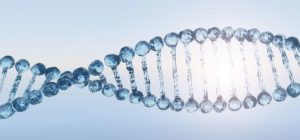Growth hormone deficiency in adults is not as common as with children, but it’s worth a second look as well, especially for people in need of a better quality of life.
RELATED: What Are The Symptoms Of Hormonal Imbalance?
In this article:
- What Is Growth Hormone Deficiency?
- What Causes Growth Hormone Deficiency in Children?
- What Causes Growth Hormone Deficiency in Adults?
- What Are the Symptoms of Growth Hormone Deficiency in Adults?
- What Is the Life Expectancy of Adults with Growth Hormone Deficiency?
- How Do You Treat Growth Hormone Deficiency in Adults?
- How Do You Naturally Increase Growth Hormone?
Everything You Need to Know About Growth Hormone Deficiency in Adults
What Is Growth Hormone Deficiency?
Growth hormone deficiency (GHD) is a condition wherein the pituitary gland fails to produce enough growth hormones. While this is a condition common in children, adults can acquire this later in life as well.
GHD occurring later in life is also called adult-onset growth hormone deficiency.
What is the pituitary gland? It’s a small, pea-sized gland at the base of the skull. It secretes hormones that regulate body temperature and thyroid activity.
What Causes Growth Hormone Deficiency in Children?
GHD in children occurs in about 1 out of 7,000 births. Children born with either cleft palates or cleft lips often have ill-developed pituitary glands and are therefore more susceptible to GHD.
Brain tumors, serious infections, radiation treatments, and head injuries can also cause GHD.
What Causes Growth Hormone Deficiency in Adults?
Adult-onset GHD can be caused by damage to the pituitary gland resulting from the following:
- Severe head injury
- Autoimmune diseases
- Radiotherapy directed at the brain
- Pituitary apoplexy, or a sudden hemorrhage in the pituitary gland
- Interference in blood supply to the pituitary gland
GHD in adults can also come from genetic abnormalities present since birth.
What Are the Symptoms of Growth Hormone Deficiency in Adults?
These are some of the common symptoms of GHD in adults:
- A decrease in muscle strength and mass
- An increase of fat in the body, especially in the waist and abdominal area
- Low energy levels
- Weak memory and concentration
- Anxiety and/or depression
- Hair loss or baldness in men
- Low libido
- Higher triglyceride levels
- High levels of LDL or bad cholesterol
- Brittle bones
- Insulin resistance
To get diagnosed, talk to your primary healthcare provider. A common diagnostic test is an insulin tolerance test that involves an insulin injection to lower blood sugar levels.
The body counts this as a moment of stress and reacts by naturally releasing growth hormones. If an inadequate amount of growth hormones are produced, this confirms GHD.
Alternative diagnostic tests involve the use of glucagon or arginine in place of insulin.
What is Glucagon? This is a hormone in the pancreas which helps break down glycogen into glucose in the liver.
What is Arginine? This is an amino acid used in protein biosynthesis and present in most protein food sources.
RELATED: HRT Hormone Replacement Therapy For Women: Frequently Asked Questions
What Is the Life Expectancy of Adults with Growth Hormone Deficiency?
Untreated, those with adult-onset GHD may have a decreased life expectancy. Studies show that death occurs in subjects as young as 41 and as old as 81.
In the study, the longevity of subjects was compared to siblings and other members of the general population in their area. While there seemed to be no difference in the life span between subjects and their siblings, the lifespans were shorter than the general population, and a high frequency of these was in females.
How Do You Treat Growth Hormone Deficiency in Adults?
Adult-onset GHD is often treated with growth hormone replacement therapy. The growth hormone in use, called somatotropin, involves artificial preparation which can be administered by the patients themselves.
The site of injection is the fat tissue in the lower abdomen. The injection device is similar to those used by patients with diabetes and is virtually painless, but prick-free devices also exist for those with a fear of needles.
Follow-up treatment is often done in an outpatient clinic with the help of an endocrine nurse. Patients are monitored and constantly given blood tests, with the growth hormone dose adjusted accordingly as needed.
Growth hormone replacement therapy is generally safe unless the dosage given is too high. Common side effects include water retention and joint discomfort but are alleviated by decreasing the dosage.
More severe side effects can include headaches and blurred vision, which can be resolved by simply stopping treatment.
How Do You Naturally Increase Growth Hormone?
Leading a healthy lifestyle and choosing healthier habits can help manage the symptoms of GHD in adults. Here are some simple changes you can try to help your body produce more growth hormones:
- Lose Excess Body Fat – The more belly fat you have, the more impaired your growth hormone production may be. Dieting and exercise, with the goal of reducing body fat, may help optimize growth hormone production.
- Reduce Sugar Intake – Refined carbohydrates spike insulin levels. Excessive sugar intake is also a huge factor in obesity, which negatively affects growth hormone levels.
- Do High-Intensity Exercise – Working out is a way to raise human growth hormone levels, and high-intensity exercise often stimulates an increased production. Examples of high-intensity exercise include weightlifting, repeated sprints, circuit training, or interval training.
- Get Proper and Enough Sleep – A large amount of human growth hormone is produced during sleep and is based around the body’s circadian rhythm. Avoiding exposure to blue light and not consuming caffeine late in the day can help individuals achieve a deeper sleep.
People who have adult-onset growth hormone deficiency may be at a higher risk of strokes and heart disease as a result of the increased occurrence of body fat, as well as changes in blood circulation and cholesterol. Leading a healthy lifestyle, eating a balanced diet, and regularly exercising to keep from becoming overweight are all crucial in reducing the risks associated with GHD.
Eating a diet high in calcium and vitamin D is also important, because GHD may result in brittle bones and the development of osteoporosis later in life. Make sure to check with your physician or primary healthcare provider before making any big changes or taking any treatments for GHD.
While a pituitary gland affectation, such as growth hormone deficiency, is a lifetime condition, it doesn’t mean you can’t live a good quality of life. Optimized healthcare and support networks are available at the touch of your fingertips.
Are you in need of health assistance for hormone problems? Reach out to us in the comments below!
Up Next:
- What Foods Are High In Estrogen?
- How To Maintain Weight Loss In A Healthy Way
- Is Your Libido Low? Causes And How To Perk Back Up


